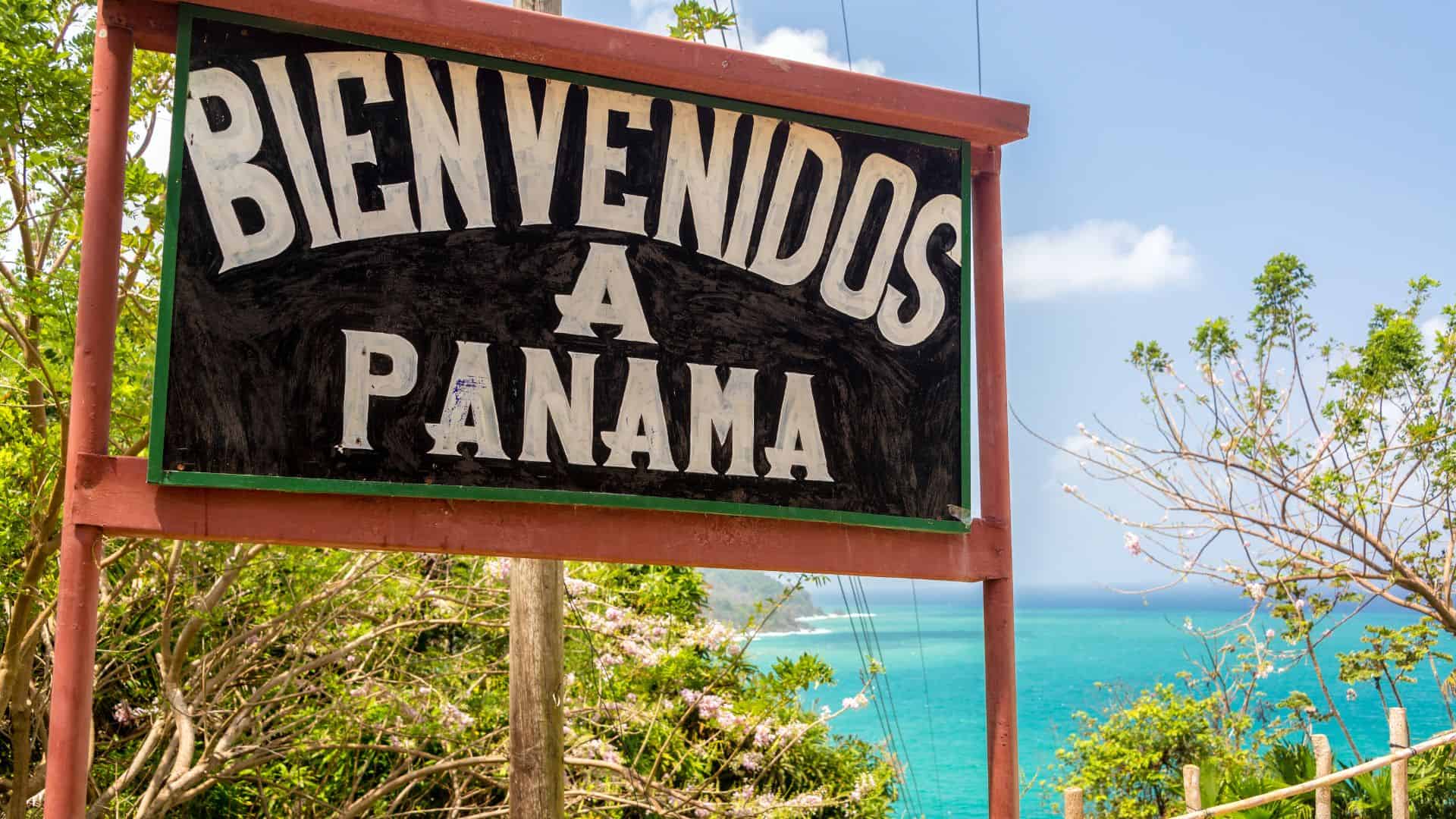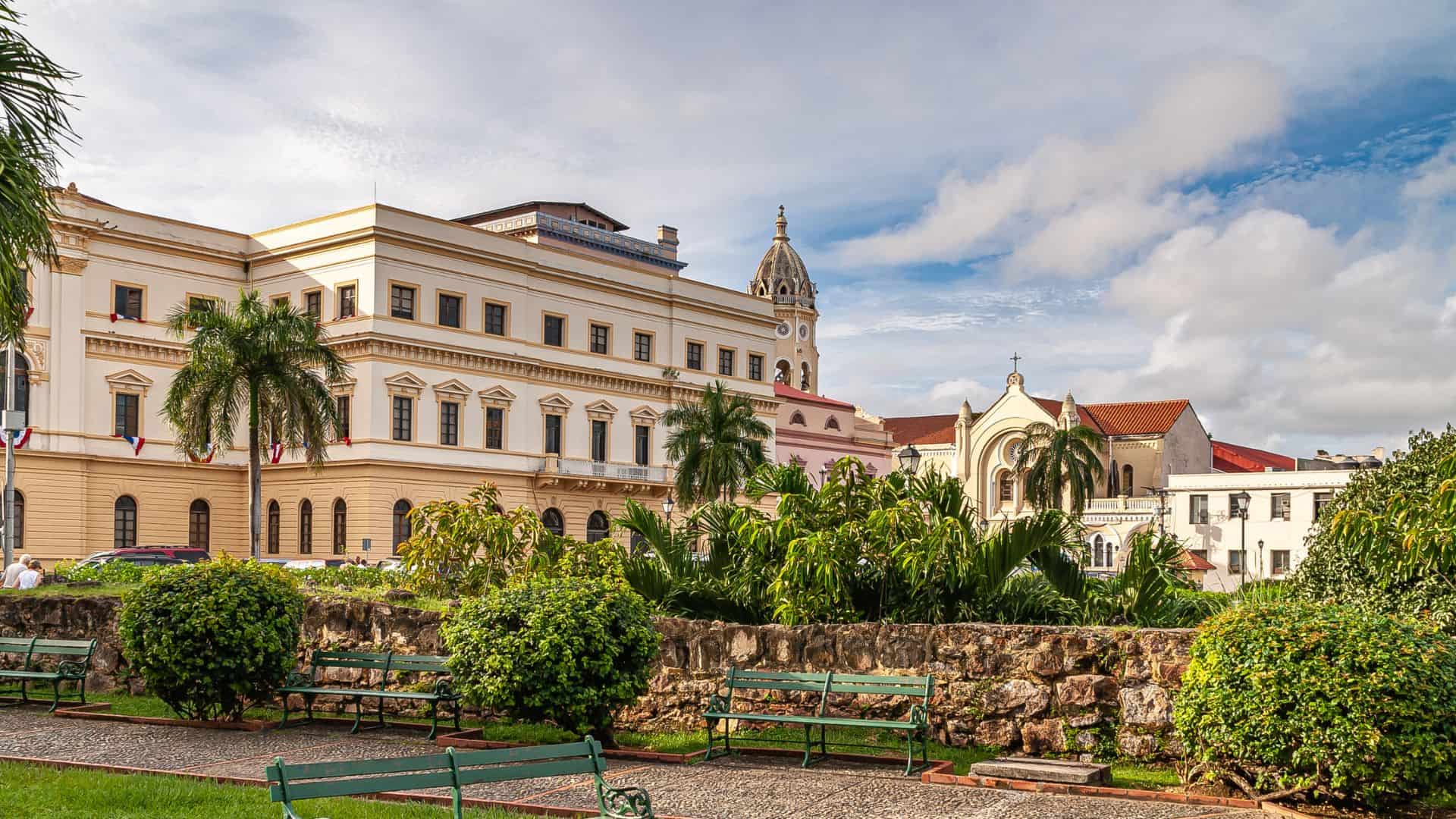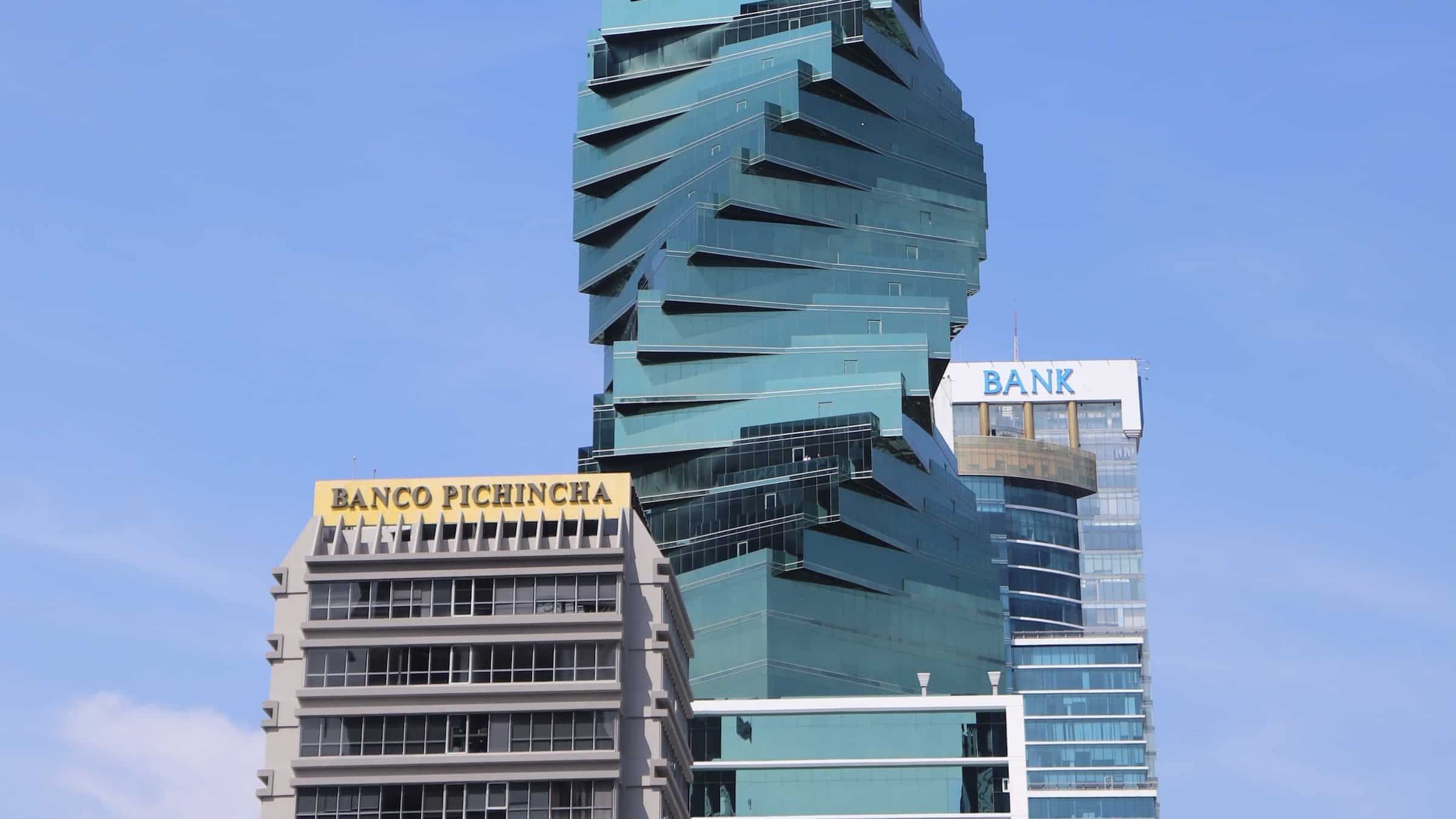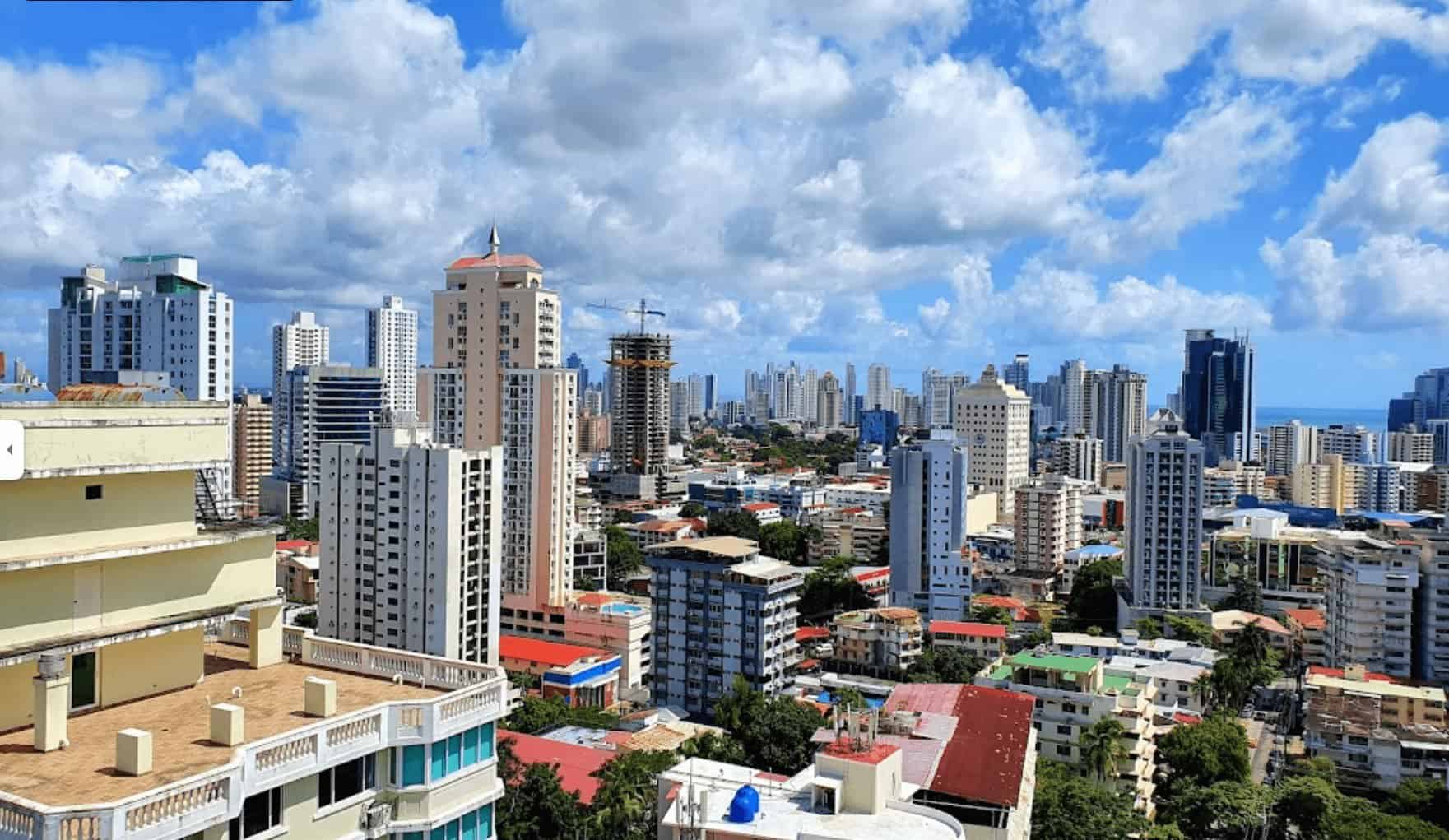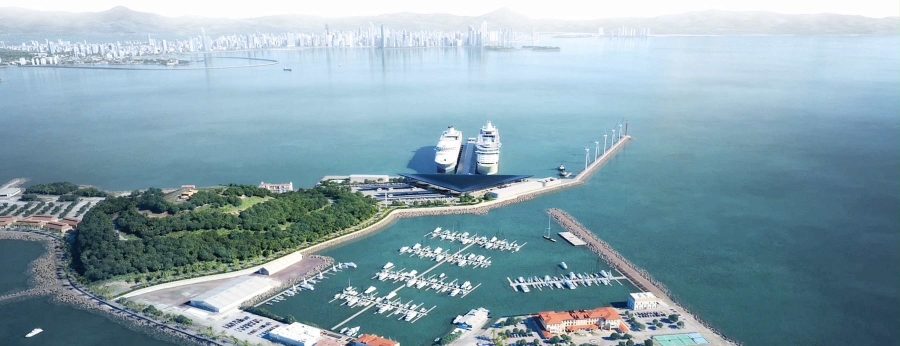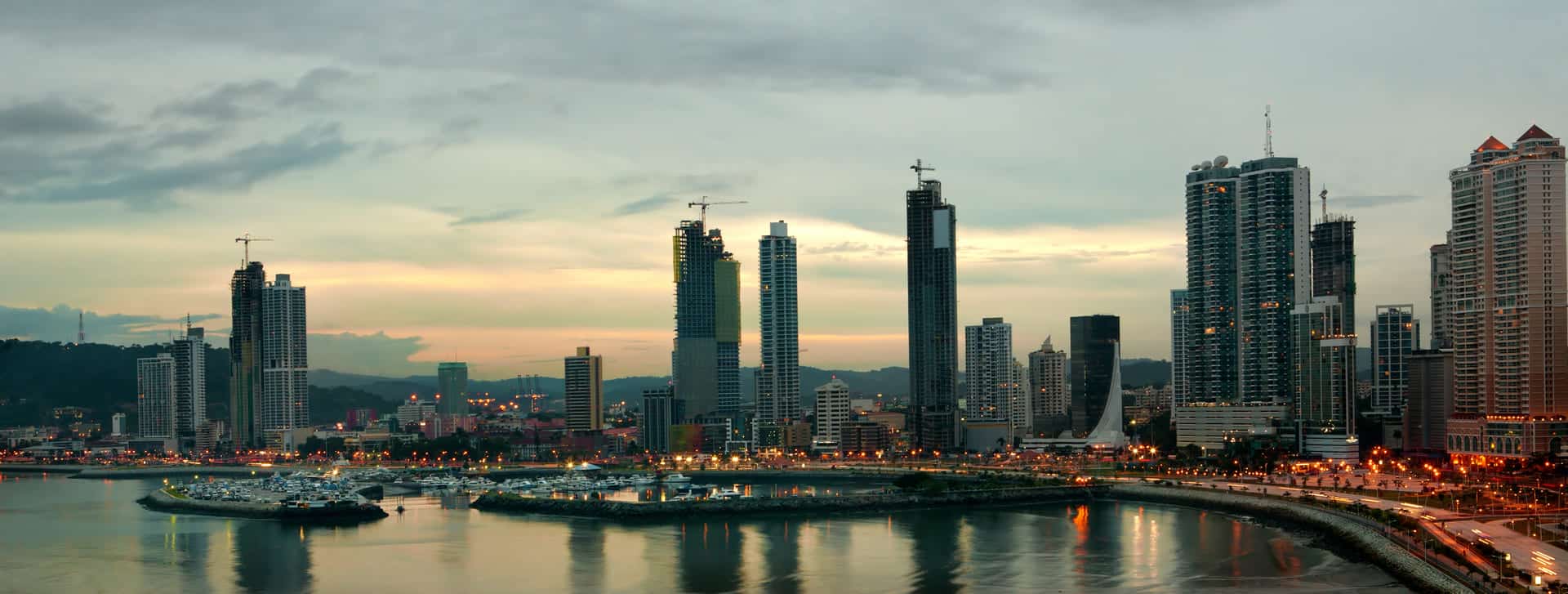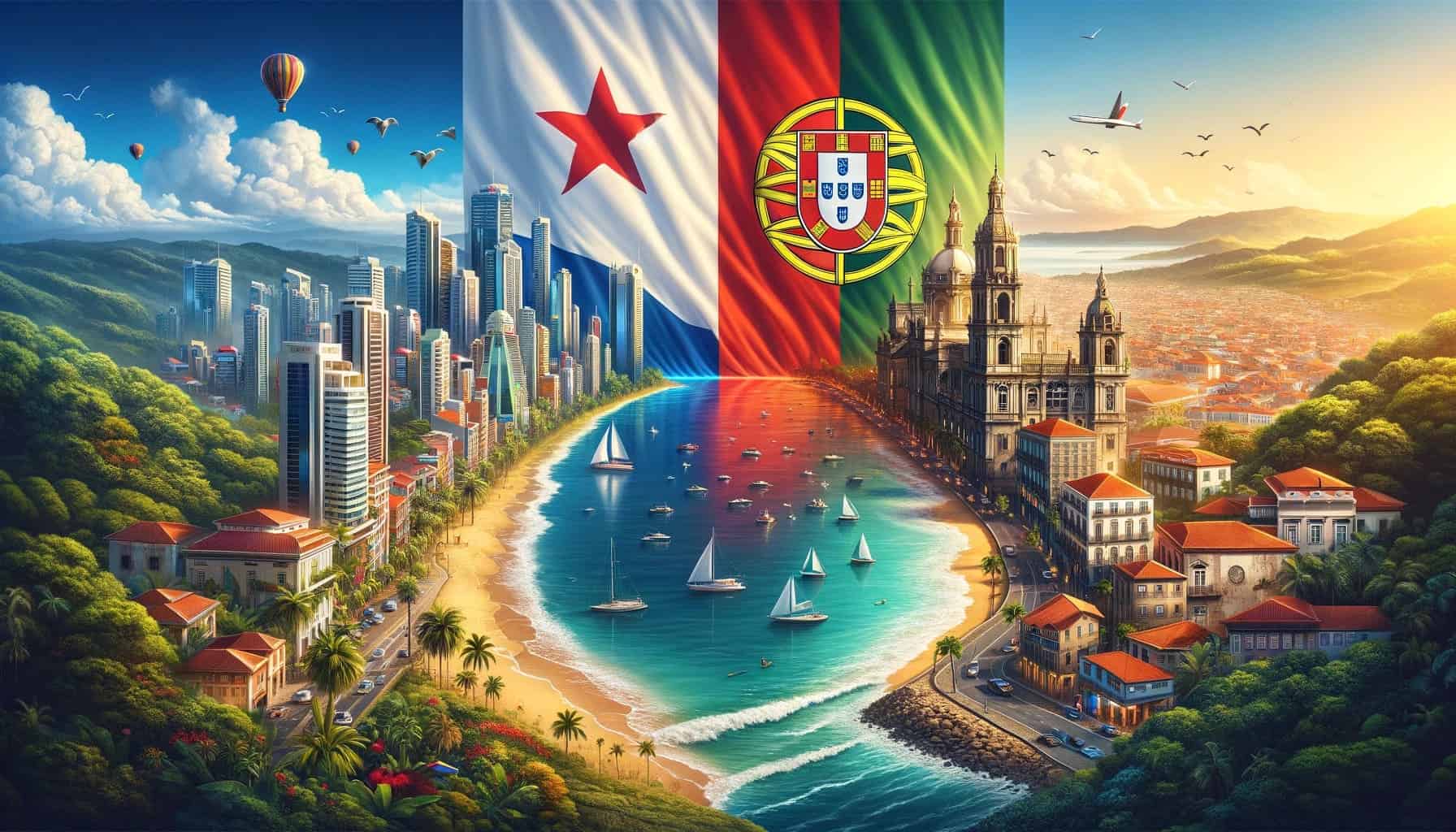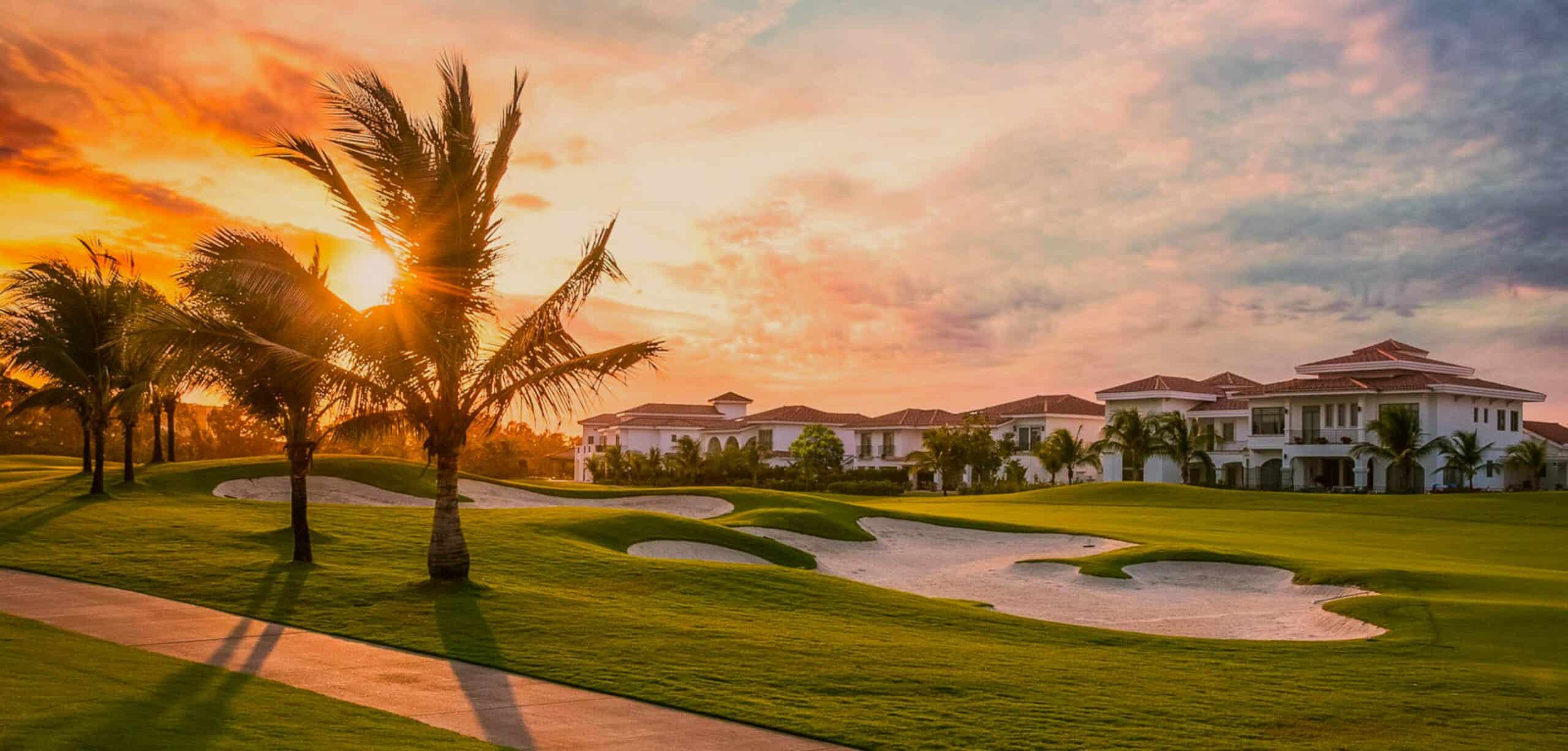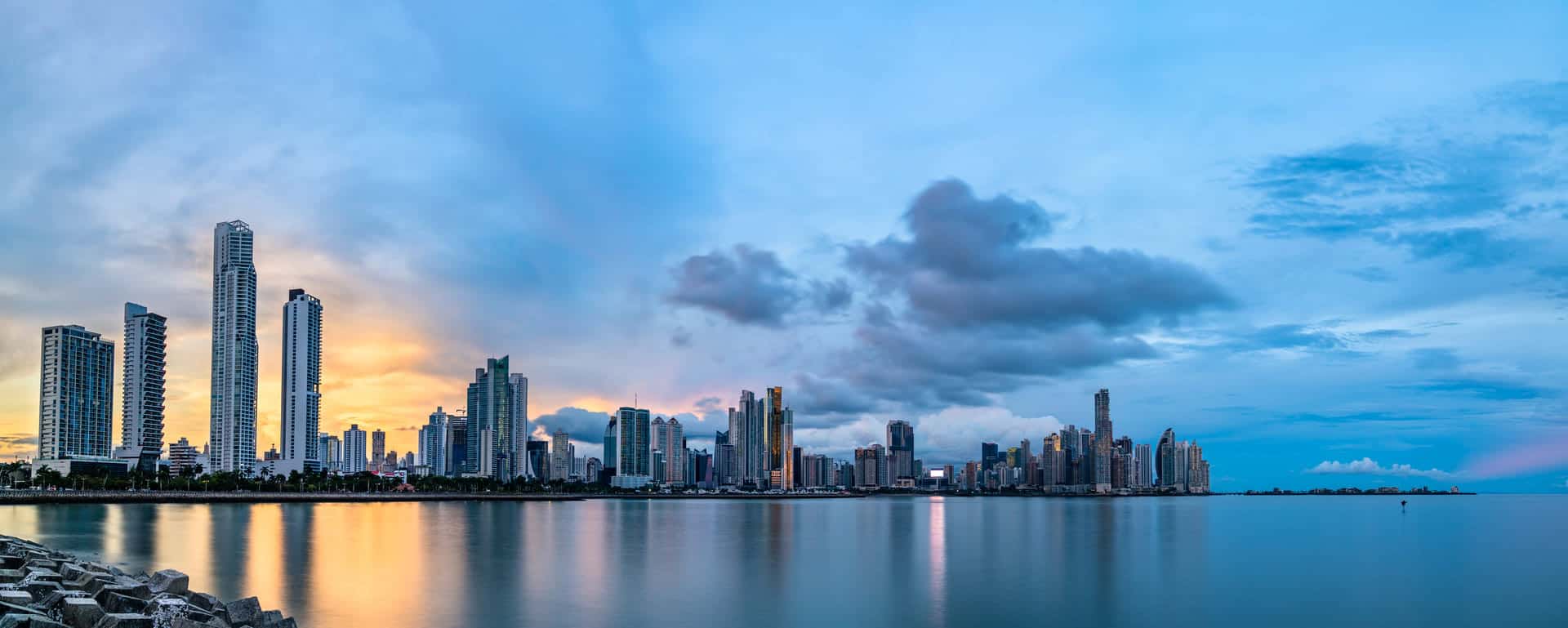Introduction
Panama, a tropical paradise nestled between the Caribbean Sea and the Pacific Ocean, has become a top choice for expats and retirees. Its stunning natural beauty, vibrant culture, and stable economy draw people from every corner of the globe.
In this comprehensive guide, we’ll delve deep into the process of moving to Panama in 2023. Our mission is to make your journey smooth, enjoyable, and stress-free. Here’s what we’ll explore:
Introduction
I. Why Move to Panama in 2023?
II. Preparing for Your Move to Panama
III. Settling in Panama: Tips for a Smooth Transition
IV. Navigating the Healthcare System in Panama
V. Understanding Panama’s Tax System and Financial Matters
VI. Navigating the Real Estate Market in Panama
Conclusion
This guide aims to be your go-to resource, offering valuable insights and practical advice at every step of your relocation. Let’s take the first step together and uncover the true potential of your new life in Panama!
Don’t forget to download our FREE PDF checklist here.
Why move to Panama in 2023?

Affordable cost of living: While Panama is experiencing rapid economic growth, the cost of living remains low compared to many other countries. Expats can find a range of affordable housing options, from modern apartments in Panama City to charming houses in rural areas. The cost of groceries, healthcare, and transportation is also budget-friendly, allowing a high standard of living without breaking the bank.

Panama’s government has implemented several policies and programs to attract expats and retirees from around the world. The Pensionado visa, for example, is designed for retirees with a guaranteed pension income. This visa offers many advantages, including tax exemptions on imported household items, discounts on medical care, and reduced rates on entertainment and transportation.
The Friendly Nations visa is another popular option for foreigners looking to move to Panama. This visa is designed for citizens of countries with strong diplomatic ties to Panama. It offers an easy residency process and potential work permit eligibility, encouraging professionals, investors, and entrepreneurs to contribute to the country’s economic growth and development.
Natural beauty and diverse landscapes: Panama’s diverse landscapes offer a unique mix of stunning natural beauty and varied environments. From the beaches of Bocas del Toro and San Blas Islands to the rainforests of Soberania National Park and the stunning mountains of Boquete and El Valle de Anton, Panama has something for everyone.
Expats can select from bustling Panama City, laid-back beach towns like Coronado, or tranquil mountain retreats such as Santa Fe. This diversity permits a wide variety of outdoor activities, such as snorkeling, scuba diving, surfing, hiking, birdwatching, and ziplining, catering to all adventure levels and preferences.

There are many kinds of music in Panama, like salsa and merengue. The food is also diverse, and you can try things like sancocho and ceviche. Panama has special festivals like Carnival and the Festival of the Diablos and Congos where people celebrate their traditions.
When you choose to live in Panama, you can benefit from a strong economy, affordable living, and beautiful landscapes. You can see mountains, beaches, and rainforests. There are also many outdoor activities to do like hiking and ziplining.
Expats can live in many different places in Panama, like Panama City, beach towns, or mountain retreats. No matter where you live, there are many things to do and explore in Panama.
II. Preparing for Your Move to Panama
A successful move to Panama starts with comprehensive research and planning. Begin by gathering detailed information about the various regions, cities, and towns in Panama. Evaluate factors such as climate, proximity to essential amenities, job opportunities, and expat communities to determine the most suitable location for your needs and lifestyle.
Panama has a tropical climate with distinct wet and dry seasons. The Pacific side has a longer dry season, while the Caribbean side is wetter and more humid. Some regions, like Boquete and El Valle de Anton, have cooler temperatures due to their elevation. Research the specific climate of your desired location to ensure it aligns with your preferences.
Consider the availability of grocery stores, hospitals, schools, and public transportation in your preferred location. Look for areas with modern infrastructure and reliable services. Investigate the quality of internet services, as well as the availability of cultural and recreational facilities.
If you plan to work in Panama, research the local job market and industries with strong growth potential, such as logistics, tourism, and technology. Explore job boards, LinkedIn, and local networking events to get a sense of the employment landscape.
Some areas, like Coronado and Boquete, have well-established expat communities, which can provide support during your transition. Join online forums, social media groups, and attend local meetups to connect with other expats and gather valuable insights.
Create a detailed checklist of tasks to complete before your move, including paperwork, packing, and logistics. This list will help you stay organized and ensure you don’t overlook essential steps. Set realistic timelines for each task and track your progress regularly.
 Comprehensive legal and financial preparations
Comprehensive legal and financial preparations
Before moving to Panama, it’s crucial to understand the legal and financial implications of your relocation. Consult with immigration experts or attorneys to understand the visa and residency options available to you. This will help you choose the most suitable program based on your individual circumstances and plan accordingly.
1. Gather all necessary documents, such as passports, birth certificates, marriage certificates, and any other relevant paperwork. Ensure that these documents are translated into Spanish, notarized, and apostilled if necessary. Keep both digital and physical copies organized and readily accessible.
2. Familiarize yourself with Panama’s banking system and requirements for opening a local bank account. You may need to transfer funds, set up a local account, or find a bank that offers international services. Research the various banks and their account options to find the best fit for your financial needs.
3. Seek professional advice on tax planning and compliance in Panama. Understand your tax obligations, exemptions, and reporting requirements as an expat. Learn about the tax treaties between Panama and your home country to avoid double taxation and optimize your financial planning.
Language and cultural adaptation
While many Panamanians speak English, learning Spanish is essential for a successful and enjoyable life in Panama. It will not only improve your day-to-day communication but also help you integrate into the local community and culture.
Enroll in language classes or use language learning apps to start your Spanish journey. Consider immersive language courses in Panama to expedite your learning process. Explore local language schools or private tutors to find the best learning environment for you.
Engage with locals to practice your language skills and learn more about the Panamanian etiquette. Attend cultural events and activities to immerse yourself in the local lifestyle. Research Panamanian history, arts, and traditions to gain a deeper understanding of the country’s rich cultural heritage.
 Comprehensive logistics and relocation services
Comprehensive logistics and relocation services
Moving your belongings to Panama may seem daunting, but with the right planning and support, it can be a seamless process. Reach out to international moving companies for quotes and compare their services, costs, and reputation.
- Shipping options: Decide whether you’ll ship your household items or purchase new ones upon arrival. Take into account any import taxes or restrictions on certain goods. Research container shipping options, air freight, and door-to-door services to find the best solution for your needs.
- Moving companies: Get quotes from several international moving companies and compare their services, costs, and reputation. Look for companies with experience in relocating to Panama and positive customer reviews. Check their insurance coverage and ensure they comply with international moving standards.
- Customs and regulations: Familiarize yourself with Panama’s customs regulations and procedures for importing household goods. Understand the required documentation, duties, taxes, and restrictions on specific items.
- Pet relocation: If needed, research pet relocation services to ensure your furry friends are well taken care of during the move. Familiarize yourself with Panama’s pet import requirements, such as vaccinations, health certificates, and microchipping. Choose a reputable pet relocation company to handle the logistics and paperwork.
III. Settling in Panama: Tips for a Smooth Transition
Navigating the local bureaucracy
The Burreaucracy in a new country can be challenging, but with patience, persistence, and the right guidance, you can successfully navigate the various processes and requirements.
- Register with local authorities: Upon arrival, register with the local immigration office and obtain any required permits or documentation.
- Get a driver’s license: If you plan to drive in Panama, you will need to obtain a local driver’s license. Research the application process and gather the necessary documents, making the process as stress-free as possible.
- Utilities and services: Familiarize yourself with local utility companies and their procedures for setting up services, such as electricity, water, and internet.
Adapting to daily life in Panama
Integrating into daily life in Panama requires time and effort, but embracing the local culture and lifestyle will significantly enrich your experience and help you feel at home. Start by observing and adopting local customs and practices, such as greetings, dining etiquette, and social norms. Familiarize yourself with the Panamanian balboa and US dollar, both used in the country, and practice using local currency for daily transactions. Although many Panamanians speak English, learning Spanish will help you communicate more effectively and integrate into the community, so consider enrolling in language classes or using language apps to improve your skills. Immerse yourself in the diverse culinary scene by tasting traditional Panamanian dishes, visiting local markets, trying street food, and dining at various restaurants. Lastly, familiarize yourself with public transportation options, including buses, taxis, and the Metro, to navigate your way around Panama with ease.
 Building a social network
Building a social network
Developing a social network in your new country is essential for support, friendship, and a sense of belonging. To achieve this, attend local festivals, cultural events, and social gatherings where you can meet people and immerse yourself in the community. Seek out clubs or organizations related to your hobbies or interests, such as sports teams, art classes, or volunteer opportunities. Additionally, maintaining connections with other expats in Panama can be invaluable, as they offer advice, friendship, and support during your transition.
Staying safe and secure
Understanding the safety and security landscape in Panama is essential for a worry-free life.
- Be vigilant: Stay aware of your surroundings, especially in unfamiliar areas or when traveling at night. Follow local news to stay informed about any safety concerns or incidents.
- Secure your home: Ensure your home is well-secured with proper locks and security measures. Consider installing a security system or hiring a security service for added protection.
- Emergency services: Familiarize yourself with local emergency services, such as the police, fire department, and medical facilities. Save important contact numbers on your phone for easy access.
By following these tips and actively engaging in your new life in Panama, you will have a smoother transition and be better equipped to enjoy all that this vibrant country has to offer. Remember, the knowledgeable team at Panacrypto is ready to assist at anytime.
IV. Navigating the Healthcare System in Panama
Panama offers a mix of public and private healthcare facilities, with high-quality services available in both sectors. Understanding the healthcare system and knowing how to access the services you need is essential for a smooth transition.
Public healthcare: Panama’s public healthcare system, known as Caja de Seguro Social (CSS), offers a range of medical services to Panamanian citizens and residents. While the care quality is generally good, public hospitals and clinics can be overcrowded, and wait times can be long. Public healthcare is funded through payroll deductions, with both employers and employees contributing a percentage of their salary.
 Private healthcare: Private hospitals and clinics are often preferred by expats due to shorter wait times, more personalized care, and a greater choice of specialists. Private facilities typically offer state-of-the-art equipment and a high standard of care, with many doctors and specialists having trained abroad. Private healthcare can be more expensive, but the quality of service is often worth the cost. Some popular private hospitals in Panama City include Hospital Punta Pacifica, Hospital Paitilla, and Centro Médico Nacional.
Private healthcare: Private hospitals and clinics are often preferred by expats due to shorter wait times, more personalized care, and a greater choice of specialists. Private facilities typically offer state-of-the-art equipment and a high standard of care, with many doctors and specialists having trained abroad. Private healthcare can be more expensive, but the quality of service is often worth the cost. Some popular private hospitals in Panama City include Hospital Punta Pacifica, Hospital Paitilla, and Centro Médico Nacional.
Health insurance options
Having appropriate health insurance coverage is essential to ensure access to healthcare services when needed. When living in Panama you can choose from the following options:
International health insurance: Many expats opt for international health insurance plans, which offer comprehensive coverage for treatment in Panama and other countries. These plans can be tailored to your specific needs and may include coverage for emergency evacuation, dental care, and maternity services. Popular international health insurance providers include Cigna, Allianz, and Bupa.
Local health insurance: Alternatively, you can purchase a local health insurance plan from a Panamanian insurance company. Local plans may be more affordable than international plans but can be more limited in coverage and may not cover treatment outside of Panama. Some well-known local insurance providers include ASSA, Pan-American Life Insurance, and MAPFRE.
Government-sponsored insurance: For expats who become permanent residents or citizens of Panama, you may be eligible for coverage under the government-sponsored CSS system. This option provides access to public healthcare facilities at a low cost, but may come with longer wait times and fewer choices for specialists.
 Finding a healthcare provider
Finding a healthcare provider
When looking for a healthcare provider in Panama, consider the following factors:
1. Choose a provider that is conveniently located near your home or workplace to ensure easy access to care. Consider the availability of parking or public transportation options when selecting a facility.
2. Look for healthcare professionals who speak your language to ensure effective communication. Many doctors in private hospitals and clinics in Panama City speak English, but it may be more challenging to find English-speaking healthcare providers in smaller towns or rural areas.
3. Ask for recommendations from fellow expats, friends, or colleagues to find a reputable health provider in your area. Online forums and expat groups can also be a valuable resource for finding healthcare providers with experience treating international patients.
Emergency services
In case of an emergency, it’s crucial to know how to access the appropriate services quickly.
- Emergency phone numbers: Save the local emergency phone numbers, such as 911 for general emergencies, 103 for the fire department, and 104 for the police, in your phone for easy access.
- Location of the nearest hospital: Familiarize yourself with the location of the nearest hospital or emergency care facility to ensure you know where to go in case of an emergency. Keep a list of emergency care facilities with their addresses and contact numbers for reference.
- Ambulance services: Be aware that ambulance services in Panama may be limited, particularly in rural areas. In some cases, it may be faster to arrange for private transportation to the nearest hospital. However, in urban areas like Panama City, ambulance services are generally more reliable and accessible.
 Prescriptions and medications
Prescriptions and medications
Pharmacies in Panama are generally well-stocked, and many medications can be purchased over the counter without a prescription. However, some medications may require a prescription from a doctor.
Check the availability of your preferred medications in Panama and consider any alternatives if they are not readily accessible. It is essential to discuss any changes in medications with your healthcare provider to ensure they are suitable for your needs. If you need to import medications, research the necessary permits and documentation required by customs authorities. Be prepared to provide a prescription or a letter from your healthcare provider explaining the medical necessity of the imported medications. Keep in mind that importing certain controlled substances may be subject to additional restrictions and regulations. In Panama, you may find that generic medications are more widely available and cost-effective compared to brand-name drugs. Consult your doctor to determine if a generic equivalent is appropriate for your needs.
Panama has numerous pharmacies, known as “farmacias,” where you can purchase medications and other health-related products. Some well-known pharmacy chains include Farmacias Arrocha, Metro, and Revilla. Many pharmacies in larger cities operate 24 hours a day, ensuring you have access to medications whenever needed.
Vaccinations and preventive care
Staying up-to-date on vaccinations and preventive care is essential for maintaining good health while living in Panama. Make sure you and your family get vaccines like MMR, DTaP, and polio to protect you from diseases. If you travel a lot or do certain activities, you may need extra vaccines like yellow fever, hepatitis, typhoid, or rabies. Talk to your doctor to know which ones you need.
Schedule regular check-ups with your healthcare provider to check your health and address any potential issues before they become more severe. Consider routine dental care, vision exams, and age-appropriate screenings for conditions such as cancer, heart disease, and diabetes.
By considering these factors, you can find a healthcare provider in Panama that meets your needs and expectations. Once you have established a relationship with a trusted healthcare professional, you’ll be better prepared to maintain your health and well-being during your time in this beautiful country. Being proactive in seeking out and understanding the various aspects of healthcare in Panama will not only make your transition smoother but also contribute to your overall well-being and health in the long run.
V. Understanding Panama’s Tax System and Financial Matters
Panama operates on a territorial tax system, meaning that residents and non-residents are taxed only on income earned within the country. Income generated outside of Panama is not subject to taxation.
Personal income tax: Panama’s personal income tax rates are progressive, ranging from 0% to 25%. The tax brackets are as follows:
-Up to $11,000: 0% tax rate
-$11,001 to $50,000: 15% tax rate
-Over $50,000: 25% tax rate
Corporate tax: The corporate tax rate in Panama is a flat 25% on taxable income earned within the country.
Property tax: Property tax rates in Panama vary depending on the property value. Rates range from 0.6% to 1% of the property’s registered value. As of 2019, primary residences with a value of up to $120,000 are exempt from property tax.
Tax residency: To qualify as a tax resident in Panama, you must have a permanent home in the country and spend more than 183 days per year in Panama.
 Banking in Panama
Banking in Panama
Expats can open a bank account in Panama, either in US dollars (most common) or other major currencies. To open an account, you will typically need your passport, a second form of identification, a reference letter from your home bank, and proof of income or employment. Many international banks have branches in Panama, including Citibank, HSBC, and Scotiabank. These banks may offer additional services and support for expats, making it easier to manage your finances between your home country and Panama. Most banks in Panama also offer online banking services, allowing you to manage your accounts, pay bills, and transfer funds from anywhere with internet access. The official currency in Panama is the Balboa (PAB), which is pegged at a 1:1 exchange rate with the US dollar (USD). In practice, the US dollar is used for most transactions in Panama.
Cost of living in Panama
Housing costs in Panama can vary significantly depending on the location, type, and size of the property. In Panama City, expect higher costs for apartments and houses in popular expat neighborhoods. In smaller cities and rural areas, housing costs are generally lower.
Utility costs in Panama, including electricity, water, and gas, are generally affordable. High-speed internet is widely available in urban areas, with prices depending on the provider and plan.
Public transportation in Panama is relatively inexpensive, with options including buses, taxis, and the Panama City Metro. Owning a car in Panama can be also a convenient and enjoyable experience, as it allows for greater freedom and flexibility in your daily life. With your own vehicle, you can explore the country at your own pace, easily access more remote areas.
As discussed earlier, healthcare costs in Panama can vary depending on whether you use public or private facilities. Expats often opt for private healthcare, which can be more expensive but offers shorter wait times and more personalized care.
The cost of groceries, dining out, and entertainment in Panama can range from very affordable at local markets and eateries to more expensive at high-end restaurants and entertainment venues. Budget accordingly based on your lifestyle and preferences.
Working in Panama
To work legally in Panama, expats need a work permit. The process for obtaining a work permit can be complex and time-consuming, so it’s essential to plan ahead and gather the necessary documentation. In most cases, your employer in Panama will sponsor your work permit application.
Panama’s job market offers a variety of opportunities for expats, particularly in sectors such as finance, technology, tourism, and logistics. Fluency in Spanish is a significant advantage when searching for a job, as many positions require bilingual proficiency.
For those looking to start a business or work as a freelancer in Panama, there are several visa options available, such as the Friendly Nations Visa and the Professional Residence Permit. These visas allow expats to work and establish businesses in Panama, fostering entrepreneurship and economic growth.
Networking is crucial for finding job opportunities and making connections in Panama. Joining expat groups, attending local events, and participating in industry-specific organizations can help you expand your professional network and increase your chances of finding employment.
Understanding Panama’s tax system and financial matters is crucial for anyone planning to move, work, or invest in the country. By familiarizing yourself with the relevant tax laws, banking procedures, and currency regulations, you can make informed decisions that will benefit your financial well-being in Panama. With this knowledge in hand, you’re better prepared to navigate the country’s financial landscape and fully enjoy the opportunities that Panama has to offer.
VI: Navigating the Real Estate Market in Panama
Finding the perfect home
Panama offers a diverse array of property types, including apartments, condos, single-family homes, and luxury villas Consider factors such as your budget, lifestyle, and family size when determining the best type of property for you. Discovering the right place to live is essential for a comfortable and enjoyable life in Panama. As a leading realtor in the area, Panacrypto can help guide you through the process of finding your dream home. Here are some tips to assist you in your search:
- Legal framework: Foreigners have the same rights as Panamanian citizens when buying property in Panama. There are only a few restrictions, such as not being allowed to purchase land within 10 kilometers of international borders and certain island properties. Understanding the legal framework will give you confidence and ensure that your property purchase is secure.
- Real estate agents: Collaborating with a knowledgeable and reputable real estate agent is crucial for a successful property search in Panama. Panacrypto, the company hosting this article, is a trusted real estate agency with extensive local knowledge that can help you find the perfect property based on your unique requirements, budget, and preferences.
- Choosing the right location: Panama offers a wide range of locations, each with its own distinct characteristics. From the bustling urban environment of Panama City to the tranquil beachfront communities and serene mountain retreats, there is something for everyone. Consider factors like accessibility, infrastructure, amenities, and future development plans when selecting a location that suits your lifestyle and investment goals.
- Property types: The country’s diverse property landscape caters to different needs and budgets. Condos and apartments in modern urban centers offer convenience and access to amenities, while single-family homes in residential neighborhoods provide more space and privacy. Gated communities, eco-friendly developments, and luxury villas are also available to cater to specific preferences and budgets.
- Property search: Start your property search by browsing online listings, visiting open houses, and attending property expos. This will give you a better understanding of the market, help you determine your budget, and allow you to refine your preferences. Keep an open mind and be prepared to adjust your expectations as you learn more about the market and local conditions.
- Financing: While obtaining financing in Panama may be challenging for foreigners, it is not impossible. Panamanian banks often require higher down payments and have stricter eligibility criteria for foreign buyers. You can explore financing options in your home country, consider obtaining a mortgage from an international bank, or, if possible, pay for the property in cash to avoid financing-related complications.
- Property taxes and fees: When buying property in Panama, you’ll need to account for property taxes, transfer taxes, and legal fees. As mentioned earlier, property tax rates are based on the property’s value, with primary residences valued at up to $120,000 being exempt. Transfer taxes are typically calculated as a percentage of the sales price, and legal fees will vary depending on the complexity of the transaction.
- Legal process: Engage the services of a reputable Panamanian attorney to help you navigate the legal process of purchasing property. They will ensure all paperwork is in order, that the property is free of liens or debts, and that all permits and documentation are in place. This will help you avoid potential issues and ensure a smooth transaction.
- Due diligence: Conducting thorough due diligence is essential before finalizing any property purchase. This includes verifying the property’s title, checking for any outstanding liens or debts, and ensuring that all permits and documentation are in order. Your real estate agent and attorney can assist you in carrying out the necessary checks to protect your investment.
- Closing the deal: Once you have found the perfect property and completed your due diligence, your real estate agent and attorney will guide you through the closing process. This includes negotiating the sales price, preparing the sales contract, and transferring the title. Understanding each step of the process will help you feel confident and secure in your investment.
Renting Property in Panama
- Rental market: Panama’s diverse rental market offers options for various budgets and preferences, from luxury apartments in high-rise buildings to more modest accommodations in residential neighborhoods. Rental prices will vary depending on the location, property type, and amenities. Conduct thorough research and work with a reputable real estate agent to find the perfect rental property that meets your needs and budget.
- Lease agreements: Lease agreements in Panama typically last for one year but can be negotiated for shorter or longer terms, depending on your needs and the landlord’s flexibility. Ensure that you fully understand the terms of the lease, including responsibilities for repairs, maintenance, and any restrictions on alterations or subletting, before signing the agreement.
- Utilities and deposits: In most cases, tenants are responsible for paying utilities such as electricity, water, and gas. Some rental properties may include certain utilities in the rent, so it’s essential to clarify this with the landlord. Landlords may also require a security deposit, usually equivalent to one month’s rent, to cover potential damages or unpaid rent. Be prepared to pay this deposit upfront and understand the conditions for its return at the end of the lease.
- Tenant rights: Familiarize yourself with tenant rights and responsibilities under Panamanian law. This knowledge will help you navigate any disputes or issues that may arise during your tenancy. Some of the rights include protection from unreasonable rent increases and evictions, while responsibilities include timely rent payments and maintaining the property in good condition.
- Property management: If you plan to rent out your property while living abroad, consider working with a property management company to handle tenant issues, maintenance, and rent collection on your behalf. Panacrypto offers property management services, ensuring that your investment is well taken care of in your absence.
By taking the time to understand the ins and outs of Panama’s real estate market, you can make informed decisions about buying or renting property in this beautiful country. Whether you’re searching for a permanent home, vacation property, or investment opportunity. Panama’s diverse real estate landscape offers something for everyone! Knowledge is key to making the most of your real estate experience in Panama, so don’t hesitate to seek expert guidance from Panacrypto to ensure a successful and satisfying property journey.
Conclusion
Moving to Panama in 2023 can be a life-changing experience, offering a wealth of opportunities for personal growth, adventure, and a high quality of life. This guide has covered the essential aspects you need to consider when planning your move. From understanding the culture and lifestyle to navigating the real estate market and planning for retirement.
As you embark on this exciting journey, remember that research, preparation, and expert guidance are crucial to making your move as smooth as possible. Panacrypto, can be an invaluable resource throughout your move. With our extensive knowledge and experience, Panacrypto can help you find the perfect property, whether you’re looking for a rental, a vacation home, or a permanent residence.
Moving to Panama presents an opportunity to embrace a new culture, lifestyle, and community. By taking the time to understand the nuances of life in this diverse and vibrant country, you’ll be well-equipped to make the most of your time in Panama. So, why wait? Start planning your move today and begin the next chapter of your life in the beautiful and welcoming country of Panama with the help of Panacrypto.
Download Our PDF-Checklist Before Moving To Panama
Ready to start planning your move to Panama? Download our FREE PDF checklist designed to help you make a seamless transition to your new life in this tropical paradise. Our checklist covers everything from document requirements and housing to healthcare and financial planning. Click the button below to get your free copy now!

